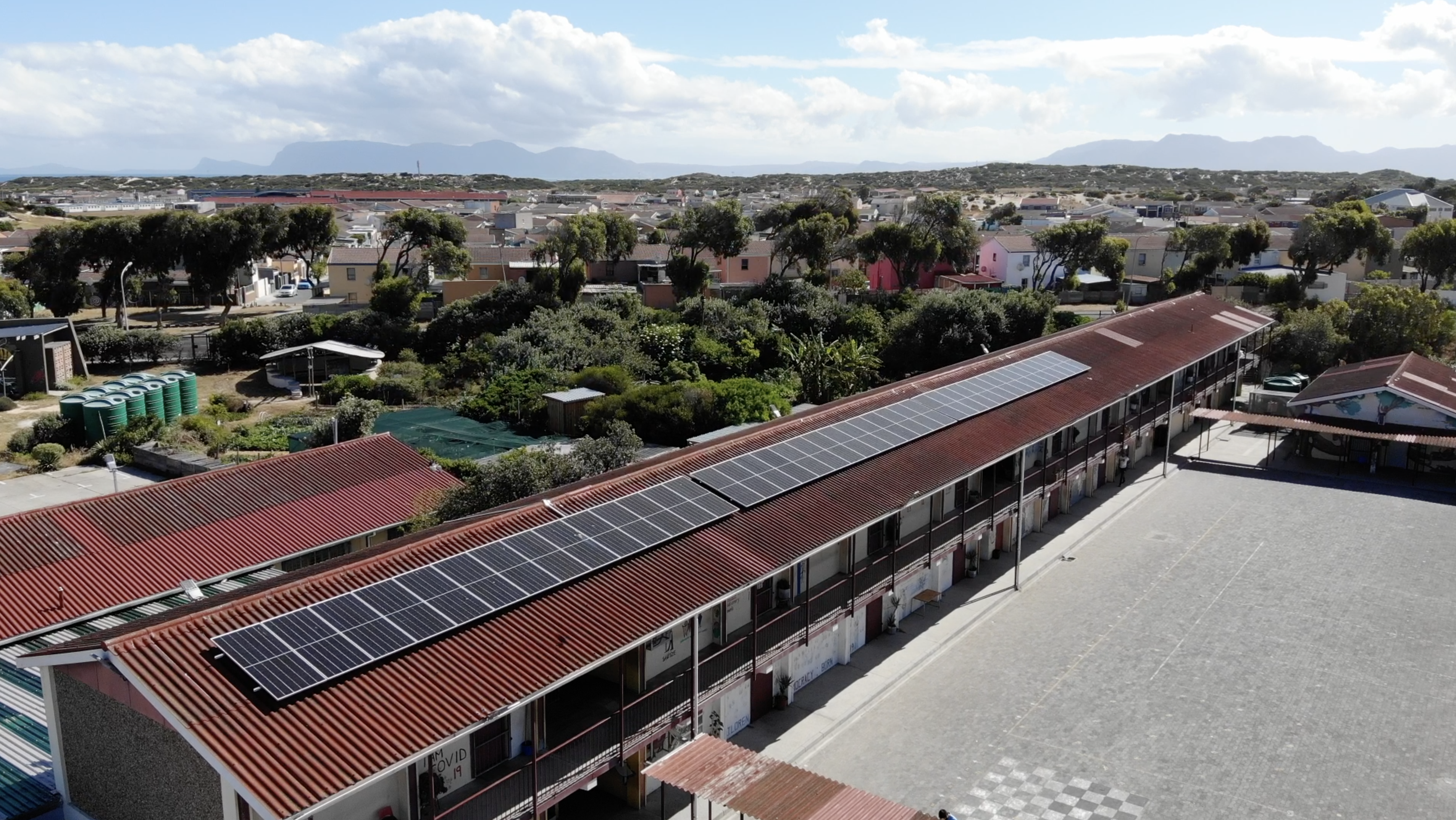TFE's Solar Schools initiative
We designed a sustainable operational model for deployment of rooftop solar systems in South African schools. Our pilot school, Rocklands Primary in Cape Town, now enjoys uninterrupted energy supply while also saving on their monthly energy bills.

The energy landscape in South Africa is in disarray with daily energy blackouts disrupting industry, forcing the closure of small businesses and affecting the lives of millions of people. Young people are disproportionally impacted by these challenges, not least of all because of the vulnerability of their schools. Teaching is crippled by the blackouts and yet schools cannot afford a back-up solar system.
See our promotional Solar Schools video here.
The Smart Schools project is designed to solve exactly this problem. We pay for and install a solar system to reduce the school’s dependency on the grid and keep the classrooms functioning through the black-outs. Smart meters measure all energy use and the school pay for each unit of solar electricity used at a rate pegged at 20% lower than the standard grid tariff. This revenue is used to pay back any initial loans and provide for all maintenance of the system. On top of this, money is set aside for a School Improvements Fund for the school to spend on new library books or computers (for example). Finally, funds are also set aside for the Pay-It-Forward Fund which ensures that after a few years, there is enough capital in place to install solar on another school.
This way the project is not only sustainable, but doubles its impact every few years. Through the Smart Schools project, finance finally becomes regenerative.
The system includes 43 Jinko 470W PV panels, a pair of SunSynk inverters, a single Freedom Won 15kWh lithium-ion battery array and remote control and monitoring equipment. This system is designed to generate 28,079 kWh of electricity per year, which saves the school 70% of their electricity costs.